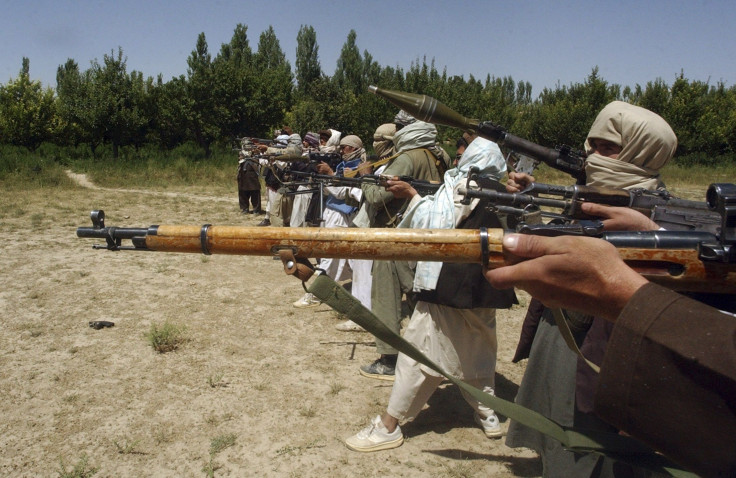New Taliban Leader Facing Tension As Top Official Quits

A top Taliban official announced his resignation on Tuesday amid a growing leadership struggle in the Afghan insurgent movement after news of the death of leader Mullah Mohammad Omar last week. The swift announcement that Omar's longtime deputy, Mullah Mohammad Akhtar Mansour, would be the new leader has riled many senior figures angry about the implication that Mansour covered up Omar's death for more than two years.
The infighting could split the Taliban and threatens tentative peace talks with the Kabul government to end 13 years of war that began with a U.S.-led campaign after the Sept. 11, 2001, attacks on the United States.
Since Mansour's appointment was announced by the Taliban leadership council based in Quetta, Pakistan, it has been denounced by several top members of the group, including Omar's brother, who has called for an assembly to choose the leader.
On Tuesday, Taliban official Syed Mohammad Tayab Agha announced he was stepping down as director of the Political Office in the Qatari capital Doha, originally set up to enable the Taliban to negotiate in any peace process. Agha said he considered the decision to conceal Omar's death -- generally attributed to Mansour -- a "historic mistake by the individuals concerned".
"Now, as the leader is appointed outside the country and from the people who are residing outside the country is also considered as a great historical mistake," he said in a statement.
Considered close to Pakistan's powerful intelligence services, Mansour faces a challenge to hold the movement together. Hardline commanders are pressing for an end to talks and the continuation of fighting that has been increasingly successful in recent months. Some reports suggest there have been clashes between rival Taliban groups, although a Taliban spokesman denied that.
Abdul Raouf Ahmadi, a police spokesman in the western province of Herat, said eight fighters, including a commander, were killed on Sunday in a battle over the leadership between two groups in a village in Shindand district.
A Taliban spokesman dismissed the report as baseless enemy propaganda.
Taliban Fracturing, Under Pressure
U.S. General John Campbell, the top American commander in Afghanistan, said disclosure of Omar's death piled more pressure on the Taliban, which he added was already fracturing and faced growing competition from other militant groups such as Islamic State.
That, he said, presented an opportunity for Afghan peace efforts. "I think it's an opportunity. People (in the Taliban) are going to say: 'Hey, why am I fighting? You've been lying to me for two years,'" Campbell said, speaking to Reuters on the sidelines of an event in Washington.
"So I think the Afghan population has an opportunity to really work this very hard, and I think Pakistan (will) continue to work it very hard."
Still, he acknowledged uncertainty ahead, including for Mansour, noting: "I'm not sure he's been universally accepted as the leader of the Taliban."
The tension pointed at least to a suspension of the peace process while Mansour tries to consolidates his position. Several commanders are known to have stopped fighting until the situation is clarified and there have been calls for a new council to be summoned to decide the leadership issue.
In his statement, Agha said previous leaders appointed outside the country, going back to the invasion by Soviet forces and the government set up after the Taliban were ousted, had "very bad repercussions" for Afghanistan. The leader should be appointed "in presence of the courageous mujahideen in their strongholds inside the country", Agha said, referring to Islamist fighters.
Taliban spokesman Zabihullah Mujahid said he could not confirm the statement came from Agha, but two senior members of the Qatar office said he had resigned on Monday. "Relations between Mullah Mansour and Tayyab Agha had never been friendly even when Mullah Omar was alive," said another Taliban member, who is close to Agha.
© Copyright Thomson Reuters 2024. All rights reserved.





















